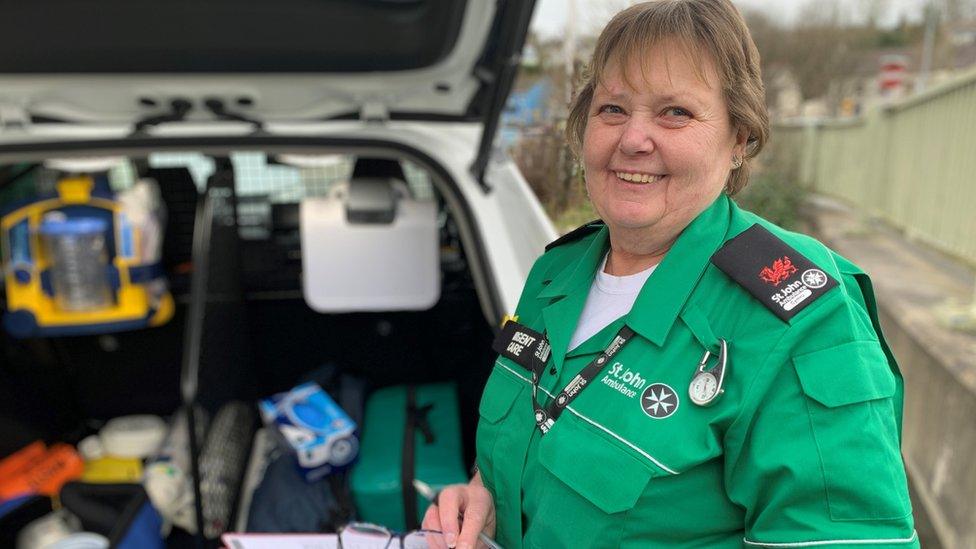Cardiac arrest survivor meets paramedic who saved her
- Published
Jordan Lewis performed CPR on his wife as he waited for an ambulance
A mum whose heart condition triggered a cardiac arrest as she slept has been reunited with the paramedics who helped save her.
Leah Lewis was shocked twice with a defibrillator to restore her heartbeat to normal after husband Jordan Lewis performed CPR for 20 minutes.
The 29-year-old, from Merthyr Tydfil, called meeting them "incredible".
"Everything I can talk about now is because of what I've been told by my family," she said.
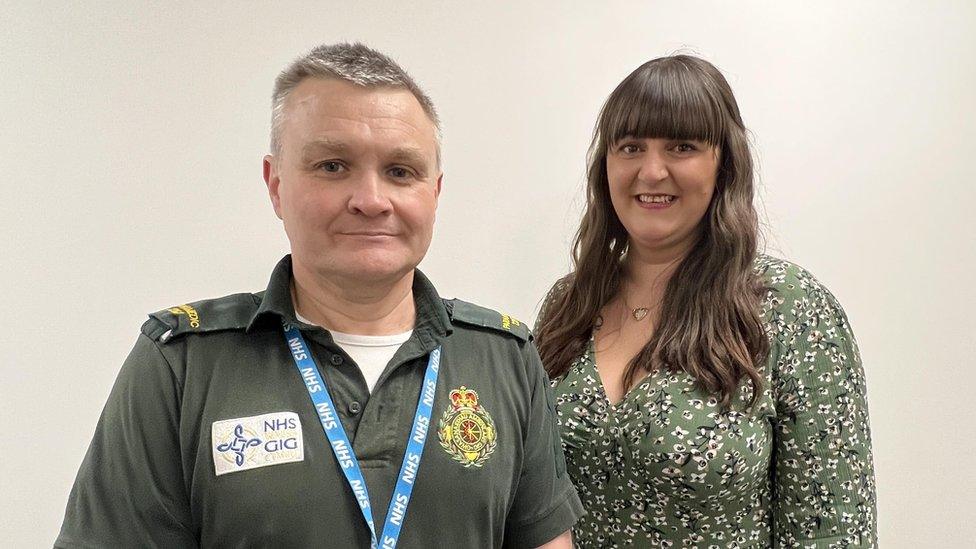
Paramedic Mark Sutherland responded after Leah Lewis had a cardiac arrest as she slept
Recalling the night it happened in November 2021 was, she said, surreal.
Ms Lewis added: "It was a Saturday night. We'd been at my brother's at the other end of the street watching the rugby.
"We walked back home and the next thing I knew it was Wednesday."
In bed, Ms Lewis went into cardiac arrest.
On dialling 999 Mr Lewis, 30, was guided through CPR to keep his wife alive until the paramedics arrived.
"I ran around her side of the bed, checked her pulse and there was nothing there," he said.
"It was the longest 20 minutes of my life."
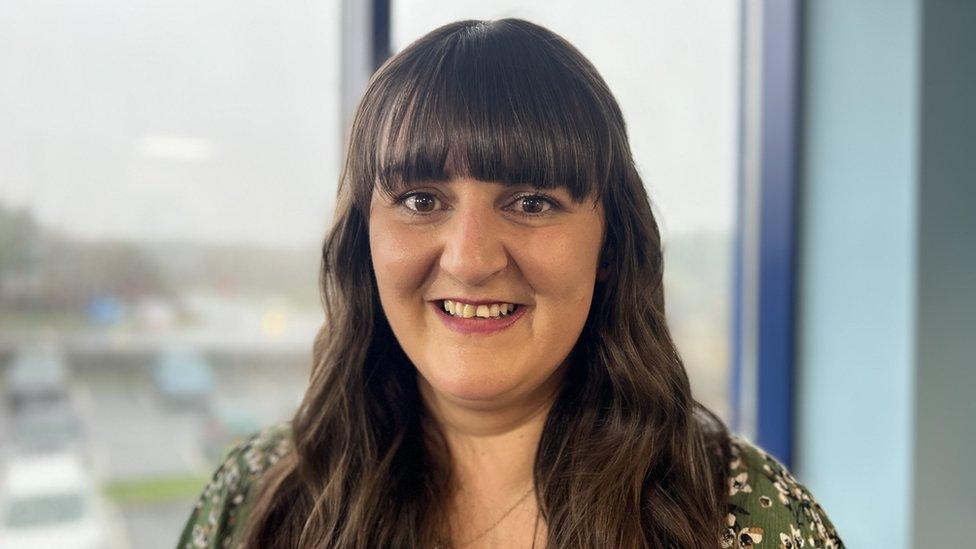
It was triggered by a rare heart condition
Ms Lewis said: "He performed amazing CPR. I've been told I certainly wouldn't be as well as I am if he hadn't.
"He's my hero. He is amazing. He is the man that I love and that I will be forever grateful to."
Paramedic Mark Sutherland was one of those who responded.
Ms Lewis met him at the unveiling of a defibrillator near her mother's workplace.
He praised Mr Lewis for giving his wife a fighting chance.
"Without his input at the start, our job would have been made a lot harder, and Leah's chances of survival would have definitely been lessened," Mr Sutherland said.
"She had fantastic quality CPR from her husband, the defibrillator was there ready to shock her, which are the first two parts of the chain of life."
Leah spent five days at Cardiff's University Hospital of Wales, where she was diagnosed with Brugada syndrome, external.
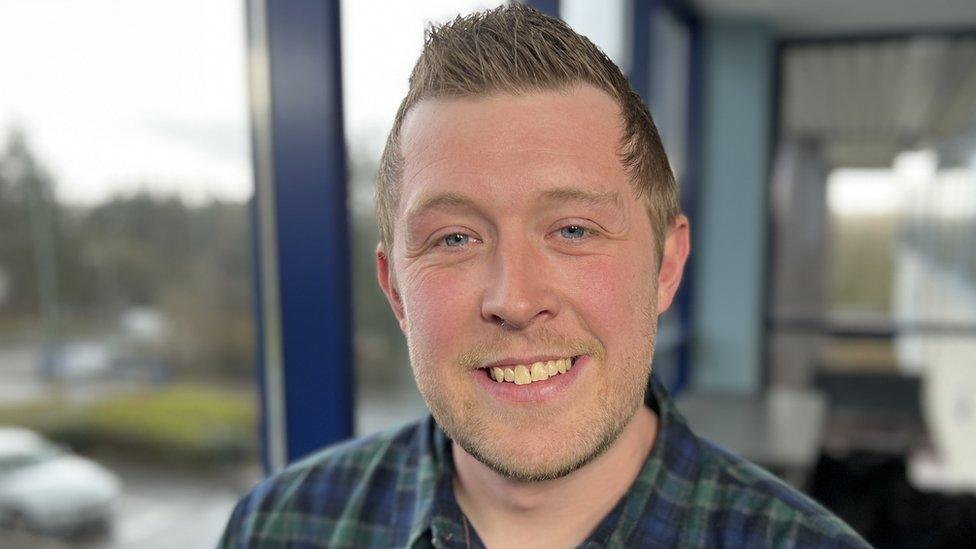
Husband Jordan Lewis performed CPR after being told how on dialling 999
The rare genetic disorder causes an abnormally fast heartbeat and can be life threatening.
Ms Lewis was given a defibrillator implant, which activates if she has a cardiac arrest.
It has already been used twice.
Ms Lewis said: "When my heart goes into ventricular fibrillation, it pretty much just vibrates. It's not pumping, it's not doing anything that it should.
"The ICD (implantable cardioverter defibrillator) picks up on that rhythm and gives me a shock to kick my heart back into rhythm. And away we go."
Despite fears Ms Lewis would be disabled after her cardiac arrest, she returned to work as a maths teacher six months later.
Her mum, Lydia Miller, has helped fund a defibrillator with her bosses at an HR consultancy near their office in Ebbw Vale, in Blaenau Gwent.
Mr Sutherland said it was good to see Ms Lewis had recovered so well.
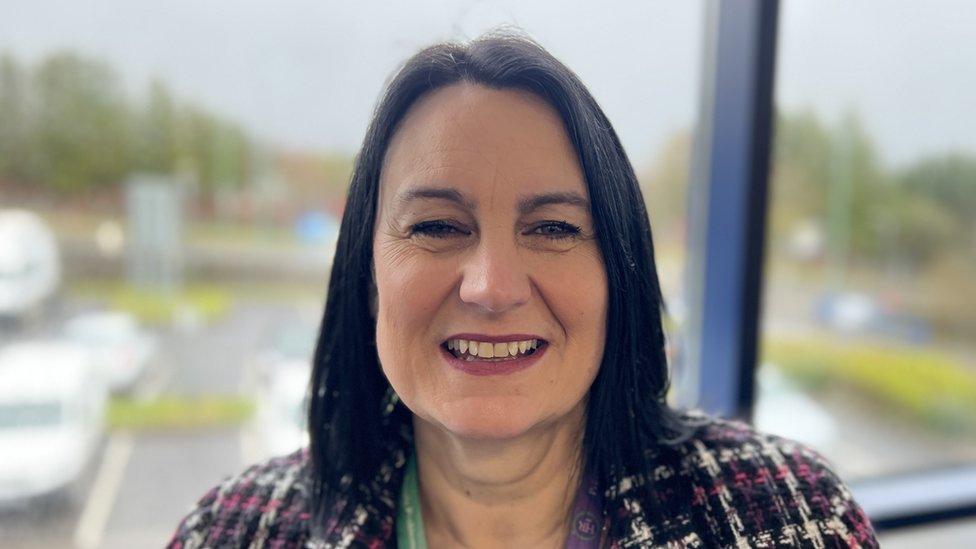
Ms Lewis' mum, Lydia Miller, has helped fund a defibrillator
"Early access to CPR and early access to a defibrillator increase a person's chances of survival," he added.
"It's great to see the defibrillator here today. We obviously don't want it to be used, but it's great that the facility is here and ready if needed."
Mrs Miller said the industrial estate location was ideal because of the number of businesses there.
"Leah was 29 when it happened so it could be any single one of us," she said.
Related topics
- Published17 March 2023
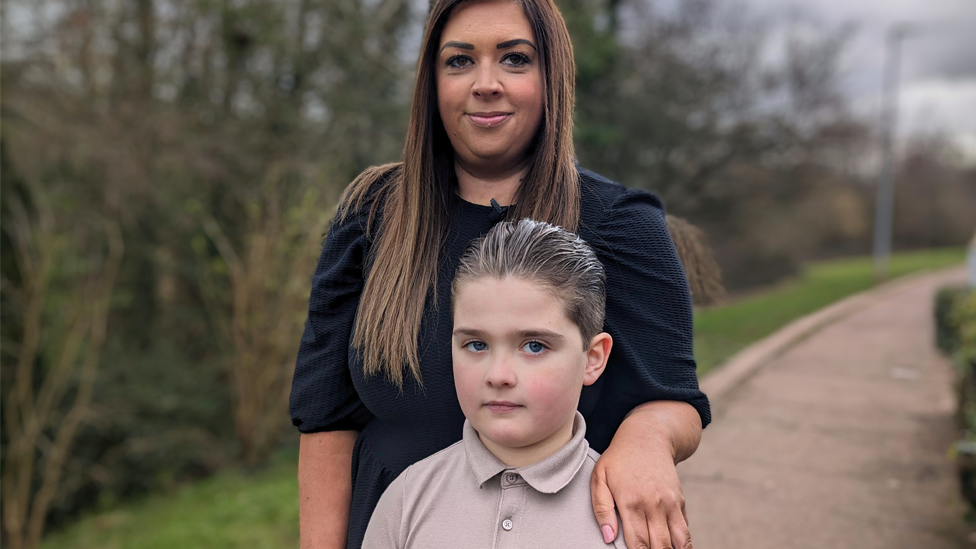
- Published13 March 2023
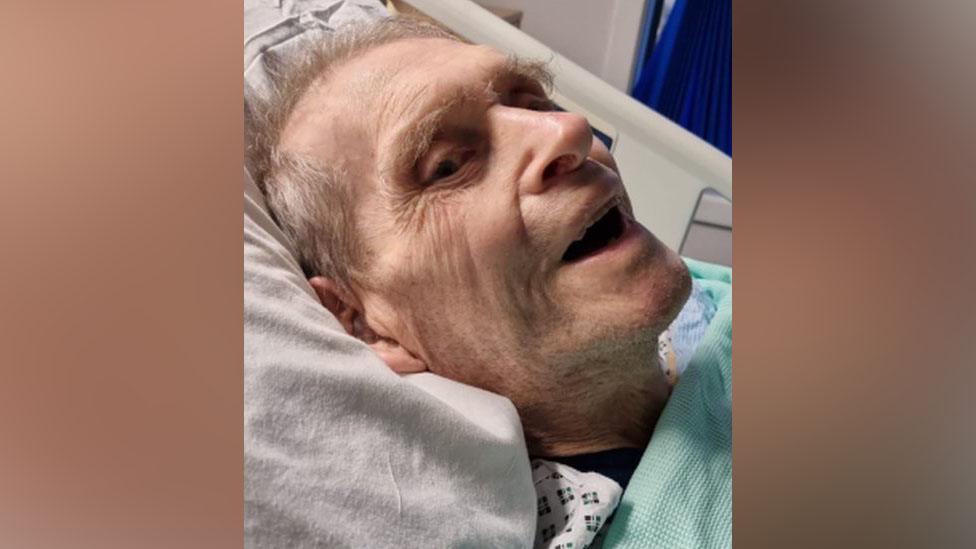
- Published10 March 2023
